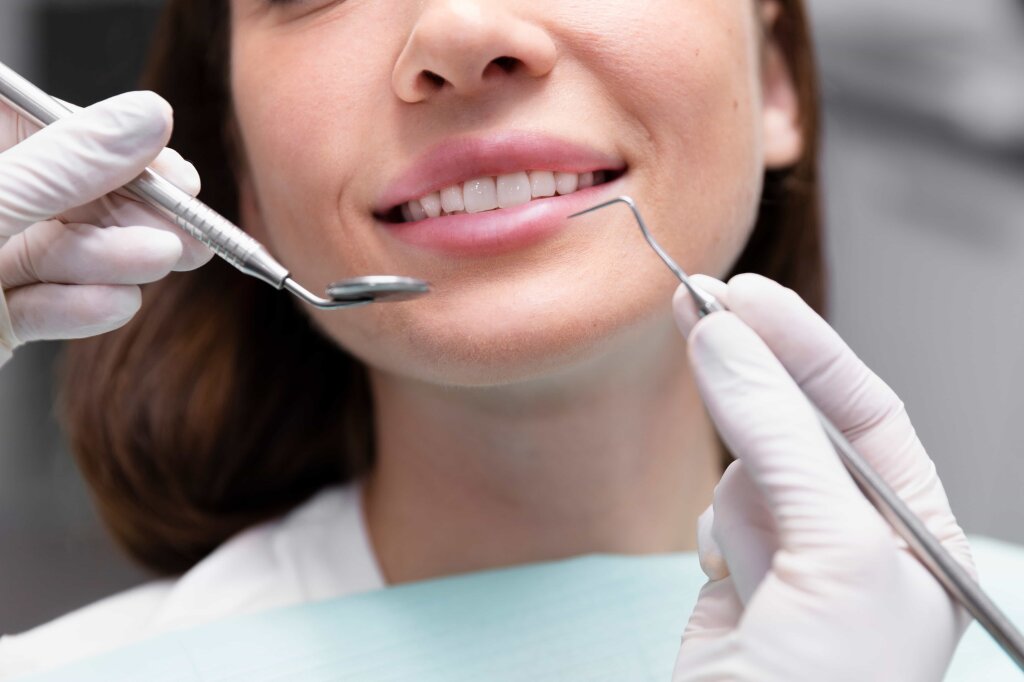Post-Implant Care: How to Protect Your Teeth for Years?
Dental implants provide a strong and aesthetic solution for missing teeth. However, to ensure long-term success, proper care after implant treatment is essential. Post-implant care is crucial for extending the lifespan of implants and maintaining gum health. So, how should you take care of your implants and keep them healthy for years to come?
Importance of Post-Implant Care
Even if the implant treatment is successful, neglecting care can lead to issues over time. Dental implants, like natural teeth, require regular and careful attention. If oral hygiene is ignored, infections can develop around the implant, leading to implant failure. Therefore, regular care and check-ups are vital if you want your implants to remain healthy and long-lasting.
Key Aspects of Post-Implant Care
1. Regular Brushing and Flossing
The most important step in implant care is maintaining good oral hygiene. You should brush your teeth at least twice a day and use dental floss to protect both your implants and natural teeth. Plaque buildup around the implant can lead to gum inflammation, endangering the long-term health of the implant.
Electric toothbrushes can be more effective in cleaning around implants. Additionally, special implant care kits and interdental brushes can help clean between the teeth.
2. Regular Dental Check-ups
Your dentist should regularly check the condition of your implants and perform necessary professional cleanings. Visiting your dentist at least twice a year allows for early detection of potential problems around the implant. Regular check-ups help extend the lifespan of the implant and prevent gum disease.
3. Start with Soft Foods
Right after implant treatment, the tissues around the implant may be sensitive. During this period, consuming soft foods will speed up the healing process. Avoiding hard and sticky foods reduces the risk of damaging the healing tissues around the implant.
4. Avoid Smoking and Alcohol
Smoking negatively affects the healing process of implants and increases the risk of infection. Similarly, alcohol consumption can slow the healing process. Limiting smoking and alcohol is essential for the healthy healing and long-term success of implants.
5. Balanced Nutrition
A balanced diet plays an important role in maintaining implant health. Adequate intake of vitamins and minerals supports oral health and speeds up the healing of tissues around the implant. Consuming calcium-rich foods helps maintain a strong bone structure.
Potential Post-Implant Problems and Solutions
Some minor issues may arise after implant treatment. However, these are usually temporary and can be resolved with proper care and intervention.
Gum Inflammation: If oral hygiene is neglected, gum inflammation may develop around the implant. Regular brushing and flossing can prevent this issue.
Pain and Sensitivity: Sensitivity may occur for a few days after the implant is placed. This is usually short-term and can be managed with pain relievers recommended by your dentist.
Implant Loosening: Although rare, implant loosening can occur. In this case, you should consult your dentist immediately.
Protecting Your Implants for Years to Come
Careful maintenance and regular check-ups after implant treatment ensure that your implants function properly for many years. The attention you give to your oral health directly impacts the success of your implants. Brushing your teeth, using floss, and regularly visiting your dentist will help keep your implants healthy.
Conclusion
Post-implant care is crucial for ensuring the longevity of your implants. With proper oral hygiene, regular dental check-ups, and healthy lifestyle habits, you can protect your implants for years to come. Staying in contact with your dentist regularly to monitor the condition of your implants and detect any potential issues early is the key to a successful implant treatment.






